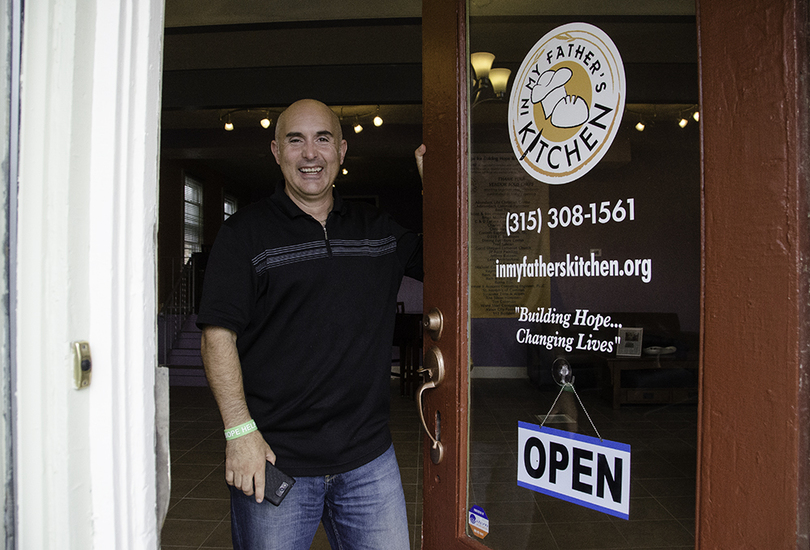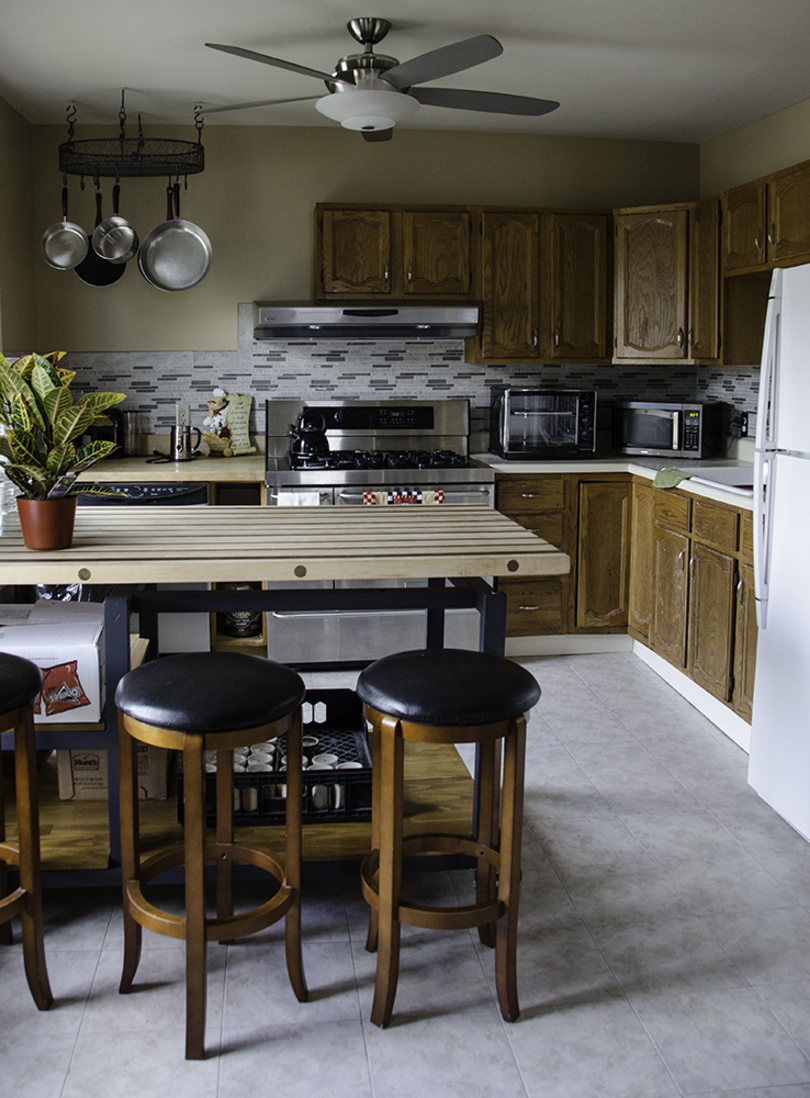On the house: In My Father’s Kitchen opens doors to local refugees, homeless
When John Tumino rolled up to a red light in his car three years ago, he watched as the driver in front of him ignored a homeless man holding a cardboard sign.
“There’s a story behind every cardboard sign,” Tumino said. He was sympathetic that the man, whose name was Tim, was being ignored. It prompted him to have a sudden realization.
“I knew this guy must have felt like he was invisible,” Tumino said. “Also, with me being a minister, there was a spiritual part (of me) that felt like ‘I see you, and I know God sees you.’ Everybody feels invisible at some point, so imagine what it’s like for the guy holding the cardboard sign.”
Tumino, then a chef at Asti Caffe in Syracuse, immediately bought the man a sandwich and introduced himself. When he told Tim that he was not invisible, Tim took a deep breath and said, “Thank you. I feel like nobody sees me.”
From there, Tumino left his job and created In My Father’s Kitchen, a nonprofit organization for those who can no longer stand living under a bridge and wish to change their lives.
Last week, the organization opened its new headquarters in a recently renovated building at 501 Hawley Ave. Until then, Tumino ran the organization out of his own home and truck. With a new location, the organization is now looking to get the Syracuse University community involved.
Friends — the word the organization prefers to use rather than “client” or “statistic” — come in through the front door, profess their rejection of homelessness and are led into the upstairs portion of the house.
Upstairs, Tumino has a bathroom with a whirlpool tub; two walk-in, take-all-you-need closets full of privately donated clothing; and a kitchen to satisfy the hunger for those who need a meal.
After a complete wardrobe change, Tumino and his wife, Leigh Ann, sit the friends down and ask why they chose to come into the organization. IMFK then works with otherlocalorganizations and individuals to help the friends find their new path and keep them on it. Tumino estimates that with the help of IMFK, the process of living under a bridge to under a roof can range from six months to a year.
As IMFK grows, Tumino said he could use some help from SU students and staff. Beyond the shortage of manpower or “sous-chefs,” Tumino believes IMFK needs students from SU to come and set an example for local children.
“These kids need to know that it’s possible to make it up the Hill, and they need to find something to get interested in,” Tumino said.
He went on to tell the story of a former SU microbiology student who was intrigued with the program, but did not know how to help. Tumino encouraged him to return once the center was up and running and to show local children the microscopic world.
Tumino hopes to one day use the basement of the new headquarters as a place where children can receive academic assistance from people like Carolyn Blount, a local public school teacher and sous-chef at IMFK.
“There is so much turmoil and despair in the world,” Blount said. “There are many local and refugee children who cannot get the help they need at home.”
In IMFK’s three years, 13 friends have made it out from under the bridge. But the organization has buried nine of them along the way. Among the friends the organization helps are the local homeless population, refugees who have moved to the area from foreign countries and local children who need help accomplishing their dreams.
Now that IMFK has a tangible location, Tumino is hoping he’ll be able to help even more friends. The amount of assistance the organization can provide, however, is dependent on the number of sous-chefs who are there to help out.
Tumino said he hopes people from the local community will come and see what the organization is about.
Rich Lester, an IMFK trustee, said for the average person, the first step is understanding the situation.
“If they come and see what we’re doing, then they’ll be more inclined to interact and help,” Lester said.
Tumino hopes that his organization can provide college students with the ability to have an affect on someone else’s life. And everyone, he said, has something to give, whether it’s clothes, furniture, money or time.
Said Tumino: “The best way to get your prayers answered is to answer someone else’s.”
Published on September 3, 2014 at 12:01 am
Contact John: jepearso@syr.edu






